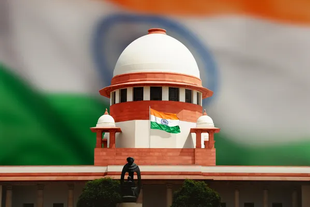
Experts are raising alarms about a silent pandemic caused by deadly fungal infections, which are becoming a growing global health threat. 🦠 These infections, often overlooked, can be dangerous and even fatal, especially for those with weakened immune systems. 🌡️ Scientists warn that fungal infections like Candida auris and Aspergillus are on the rise, partly due to climate change and antibiotic resistance, making them harder to treat. Hospitals are seeing more cases, but public awareness remains low, creating a potentially dangerous situation. 🏥😷
What’s Causing the Rise of Fungal Infections? 🚨
There are several factors contributing to the increase in fungal infections. Climate change is playing a major role, as rising temperatures create more suitable environments for fungi to thrive. 🌡️ Additionally, antibiotic overuse and the spread of drug-resistant strains have made it harder for healthcare professionals to treat these infections. 🏥 This deadly combination means that fungal infections are spreading faster, particularly in hospitals and healthcare settings.
Infections like Candida auris, a multi-drug-resistant fungus, have been causing serious concern, as it can survive on surfaces and spread easily in hospitals. 📈 Once it infects a patient, it’s extremely difficult to treat and can be fatal in up to 60% of cases. Other fungal infections like Aspergillus also threaten people with weakened immune systems, making them even more vulnerable to this emerging threat.
Silent but Deadly: Lack of Awareness 🚫
Unlike bacterial and viral infections, fungal infections often fly under the radar. Public awareness remains dangerously low, and many people don’t realize how serious these infections can be. 🙈 Even in the medical community, fungi tend to receive less attention, which has allowed this "silent pandemic" to grow unnoticed. 🌍
Scientists are pushing for more research and awareness to tackle the problem before it becomes a full-blown health crisis. 🧪 More funding is needed to develop new treatments and diagnostics to fight these infections effectively. If we don't take action soon, experts warn that this could become a global health emergency.
What Can We Do? 🔬
To fight this growing threat, experts recommend that hospitals implement stricter hygiene practices to prevent the spread of these infections. 🧼 Additionally, investing in new treatments and antifungal drugs is crucial to prevent resistant strains from taking hold. Public education campaigns are also necessary to raise awareness about the dangers of fungal infections and how to prevent them. 📢
With the right precautions and more attention from both the medical community and the public, it’s possible to stop this "silent pandemic" before it spirals out of control. 🌍🛑




























